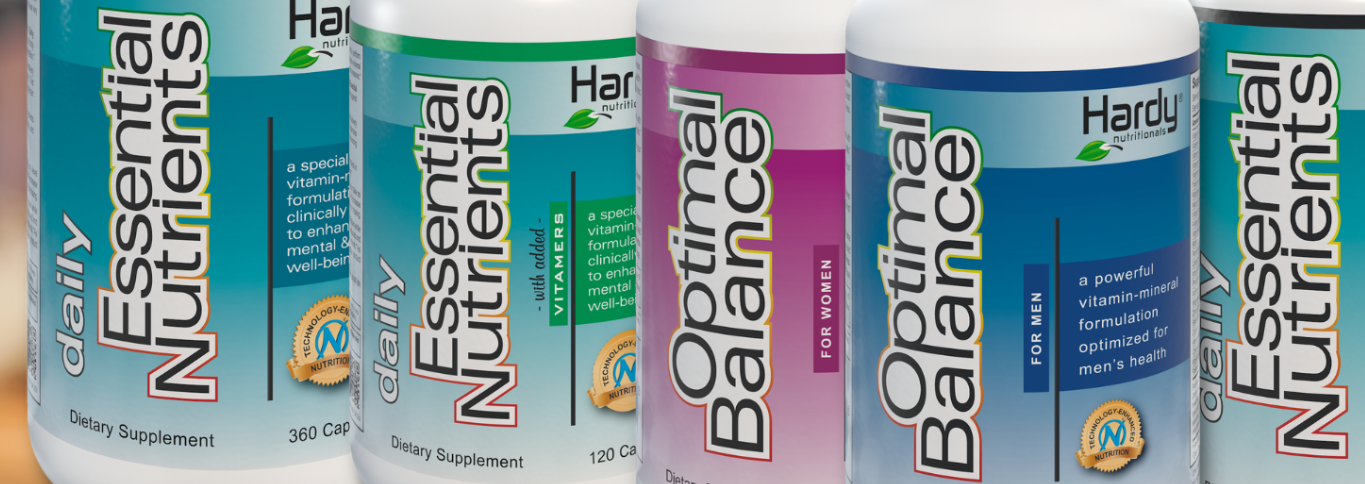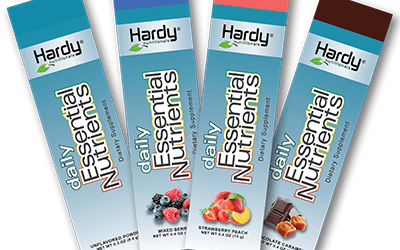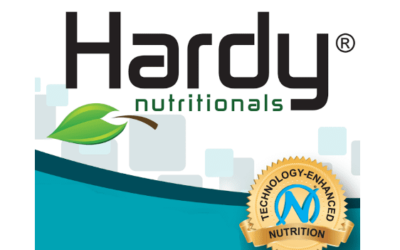A Comprehensive Look at Supplements and Herbs
In recent years, interest in complementary and alternative approaches to mental health has grown substantially. While conventional treatments remain the foundation of mental healthcare, many individuals are exploring natural supplements and herbs as adjunctive therapies to support psychological wellbeing. This growing field of research examines how various nutrients, botanicals, and natural compounds may influence brain function, mood regulation, and stress response systems.
The Emerging Science of Nutritional Psychiatry

The connection between nutrition and mental health represents an exciting frontier in psychiatric research. The brain, consuming approximately 20% of the body’s energy resources, requires a complex array of nutrients to function optimally. Recent research published in the journal Nutrients has demonstrated significant associations between dietary patterns and mental health outcomes, suggesting that nutritional interventions may serve as valuable complements to traditional treatment approaches for conditions like depression and anxiety.
Many individuals seeking holistic approaches to mental wellness are turning to resources like the Dictionary of Supplements and Herbs for mental health, which catalogs various natural compounds and their potential psychiatric applications. This growing body of knowledge helps bridge the gap between conventional psychiatry and nutritional science.
Essential Vitamins and Minerals
Vitamin D: The Sunshine Nutrient
Vitamin D deficiency has been consistently linked to mood disorders, particularly seasonal affective disorder and depression. A meta-analysis published in the British Journal of Psychiatry found that low vitamin D levels were associated with a 31% increased risk of depression. The vitamin’s role in neurological function extends beyond mood regulation to cognitive performance and neuroprotection, making it an important consideration for comprehensive mental health care.
The B Vitamin Complex
The B vitamins play crucial roles in neurotransmitter synthesis and neurological function. Thiamin (B1) supports glucose metabolism in the brain, while riboflavin (B2) aids in cellular energy production critical for neural activity. Niacin (B3) participates in DNA repair and cellular signaling processes that maintain neuronal health.
Perhaps most studied among the B vitamins for mental health is vitamin B6, which serves as a cofactor in the synthesis of serotonin, dopamine, and GABA—neurotransmitters directly involved in mood regulation. Similarly, folate plays a vital role in methylation processes that impact neurotransmitter metabolism, with research indicating potential benefits for treatment-resistant depression when used as an adjunctive therapy.
Minerals for Mental Wellness
Minerals like zinc, magnesium, and chromium have garnered significant attention in mental health research. Magnesium, often called “nature’s relaxant,” modulates NMDA receptor activity and supports the regulation of stress hormones. Research published in PLoS ONE demonstrated that magnesium supplementation was associated with significant improvements in depression symptoms, with effects comparable to some pharmaceutical interventions in mild-to-moderate cases.
Zinc deficiency has been observed in individuals with depression and anxiety disorders, possibly due to its role in neurotransmitter systems and neuroplasticity. As an essential cofactor for more than 300 enzymes, adequate zinc levels are crucial for optimal brain function and emotional regulation.
Less commonly discussed minerals like molybdenum and minerals from sources such as Great Salt Lake minerals may offer additional support through their roles in detoxification pathways and electrolyte balance, though research specifically addressing their mental health applications remains limited.
Amino Acids and Protein Derivatives
Amino acids serve as precursors to neurotransmitters that regulate mood, attention, and cognitive function. L-glutamine, primarily known for its role in gut health, may indirectly support mental wellness through the gut-brain axis. Emerging research suggests that maintaining gut integrity could influence neuroinflammation and neurotransmitter production, potentially affecting mood and anxiety.
Acetyl-L-carnitine has demonstrated promise for depression, particularly in older adults. A systematic review published in Psychosomatic Medicine found that acetyl-L-carnitine supplementation produced significant reductions in depressive symptoms compared to placebo, with effects most pronounced in older individuals and those with treatment-resistant depression.
N-acetylcysteine (NAC) represents one of the more extensively researched amino acid derivatives for mental health. As a precursor to glutathione, the body’s master antioxidant, NAC may help reduce oxidative stress in the brain. Clinical trials have explored its potential in obsessive-compulsive disorder, bipolar depression, and substance use disorders, with promising preliminary results that warrant further investigation.
Herbal Remedies for Mental Wellness
Adaptogens and Stress Response
Adaptogenic herbs help the body resist various stressors and restore physiological balance. Eleuthero root, traditionally used in Eastern medicine, shows promise for enhancing stress resilience and cognitive function during periods of mental fatigue. Similarly, certain compounds in licorice root extract may influence cortisol metabolism, though its use requires careful consideration due to potential effects on blood pressure and electrolyte balance.
Cognitive Support and Neuroprotection
Ginkgo biloba stands among the most thoroughly studied herbs for cognitive function. Its mechanism appears to involve improved cerebral blood flow and antioxidant properties. While research on its effects in Alzheimer’s disease has yielded mixed results, some studies suggest modest benefits for age-related cognitive changes and attention.
For antioxidant support, grape seed extract contains proanthocyanidins that may protect neural tissue from oxidative damage. Research published in the Journal of Nutritional Biochemistry indicates that these compounds can cross the blood-brain barrier, potentially offering neuroprotective benefits that could support long-term cognitive health.
Anti-inflammatory Botanicals
Chronic inflammation increasingly appears to play a role in the pathophysiology of several mental health conditions. Olive leaf extract contains oleuropein and other compounds with demonstrated anti-inflammatory properties. While direct studies on mental health outcomes remain limited, the extract’s ability to reduce inflammatory markers suggests potential indirect benefits for neuroinflammatory processes implicated in depression and cognitive decline.
Ginger root extract contains gingerols and shogaols that inhibit inflammatory pathways similar to those targeted by some psychiatric medications. Preliminary research suggests these compounds may influence neurotransmitter activity and neuroinflammation, though human clinical trials specific to mental health conditions are still emerging.
Emerging Compounds and Novel Approaches
Microalgae and Superfood Supplements
Spirulina and chlorella, blue-green algae rich in protein, vitamins, minerals, and bioactive compounds, have attracted interest for their potential neuroprotective properties. Research published in Evidence-Based Complementary and Alternative Medicine suggests that certain compounds in these microalgae may protect against neurotoxicity and oxidative stress, processes implicated in mood disorders and cognitive decline.
Similarly, concentrated plant extracts like those from spinach leaf and bilberry fruit provide antioxidants and phytonutrients that may support brain health. Anthocyanins in bilberry have demonstrated ability to improve vascular function and cross the blood-brain barrier, potentially supporting cognitive function through enhanced cerebral blood flow.
Digestive Enzymes and Gut-Brain Connection
The emerging understanding of the gut-brain axis has led to interest in digestive support for mental health. Enzymes such as amylase, bromelain, and papain may indirectly influence mental wellness by supporting proper digestion and nutrient absorption. Additionally, probiotics like lacto-bifidus show promise for modulating the gut microbiome composition, potentially influencing neurotransmitter production and inflammatory processes that affect mood and cognition.
Traditional Remedies Gaining Scientific Attention
Shilajit, a traditional Ayurvedic substance containing fulvic acid and numerous minerals, has demonstrated potential cognitive-enhancing properties in preliminary research. Similarly, bee-derived compounds such as royal jelly and bee pollen contain unique bioactive compounds being studied for their neuromodulatory effects, though robust human trials remain limited.
Practical Considerations for Supplementation
Personalized Approaches
The complex interplay between individual biochemistry, genetic factors, and environmental influences necessitates personalized approaches to supplementation. What works effectively for one person may prove ineffective or even counterproductive for another. Consulting healthcare providers knowledgeable in both conventional psychiatry and nutritional approaches allows for tailored strategies that consider medical history, current medications, and individual needs.
Quality and Sourcing
Supplement quality varies dramatically across products and manufacturers. Third-party testing for purity, potency, and contaminants provides crucial quality assurance. For botanical supplements, factors such as growing conditions, harvesting practices, and extraction methods significantly influence the concentration of active compounds. Resources that evaluate supplement quality can help consumers make informed choices about products like alpha-lipoic acid and green tea extract, where standardization of active ingredients is particularly important.
Integration with Conventional Care
Natural approaches to mental health work best when integrated thoughtfully with conventional care rather than used as substitutes for evidence-based treatments. The emerging field of integrative psychiatry aims to combine the best of both conventional and complementary approaches, utilizing pharmaceuticals when necessary while addressing nutritional factors, lifestyle modifications, and mind-body practices that support overall mental wellness.

In Summary
The growing research on nutritional and botanical approaches to mental health offers promising avenues for supporting psychological wellbeing. From essential nutrients like vitamin D and magnesium to adaptogenic herbs and emerging compounds like NAC, these natural approaches may provide valuable adjuncts to conventional care. However, the field still faces challenges including variability in research quality, lack of standardization across products, and the need for more robust clinical trials specific to psychiatric applications.
For those interested in exploring these approaches, comprehensive resources like the Dictionary of Supplements and Herbs for mental health provide valuable starting points for understanding the potential applications and considerations for various natural compounds. As research continues to evolve, integrative approaches that combine evidence-based conventional treatments with thoughtfully selected nutritional and botanical strategies may offer the most comprehensive support for mental wellness.
For more information on supplemens for mental health consult our comprehensive guide for micronutrient and supplement therapy and how it can treat specific issues and enhance certain modalities of therapy.
If you’re interested in exploring micronutrient therapy as part of your anxiety treatment plan, Hardy Nutritionals offers a range of products to fit your specific needs. Their Daily Essential Nutrients clinical strength formula provides comprehensive, research-backed dosages in convenient capsule or powder form.
For 15% off in savings, use the offer code “Taproot” at checkout on the Hardy Nutritionals website to receive 15% off your order. @ GetHardy.com
It’s important to remember that while micronutrient therapy can be a powerful tool for managing anxiety, it is not a replacement for professional mental health care. Always consult with a qualified healthcare provider before starting any new supplement regimen, particularly if you have pre-existing health conditions or are taking medications.
Disclaimer: These statements have not been evaluated by the Food and Drug Administration. These products are not intended to diagnose, treat, cure, or prevent any disease. Please consult with a qualified healthcare professional before beginning any supplement regimen, particularly if you are pregnant, nursing, have a medical condition, or are taking medications. The information on this website doesnot constitute medical advice. We recieve a small commision on sales with Hardy Nutritionals through our offer code. Our affiliation does not effect treatment or recomendations made by Taproot authors, therapists or other staff.


























0 Comments